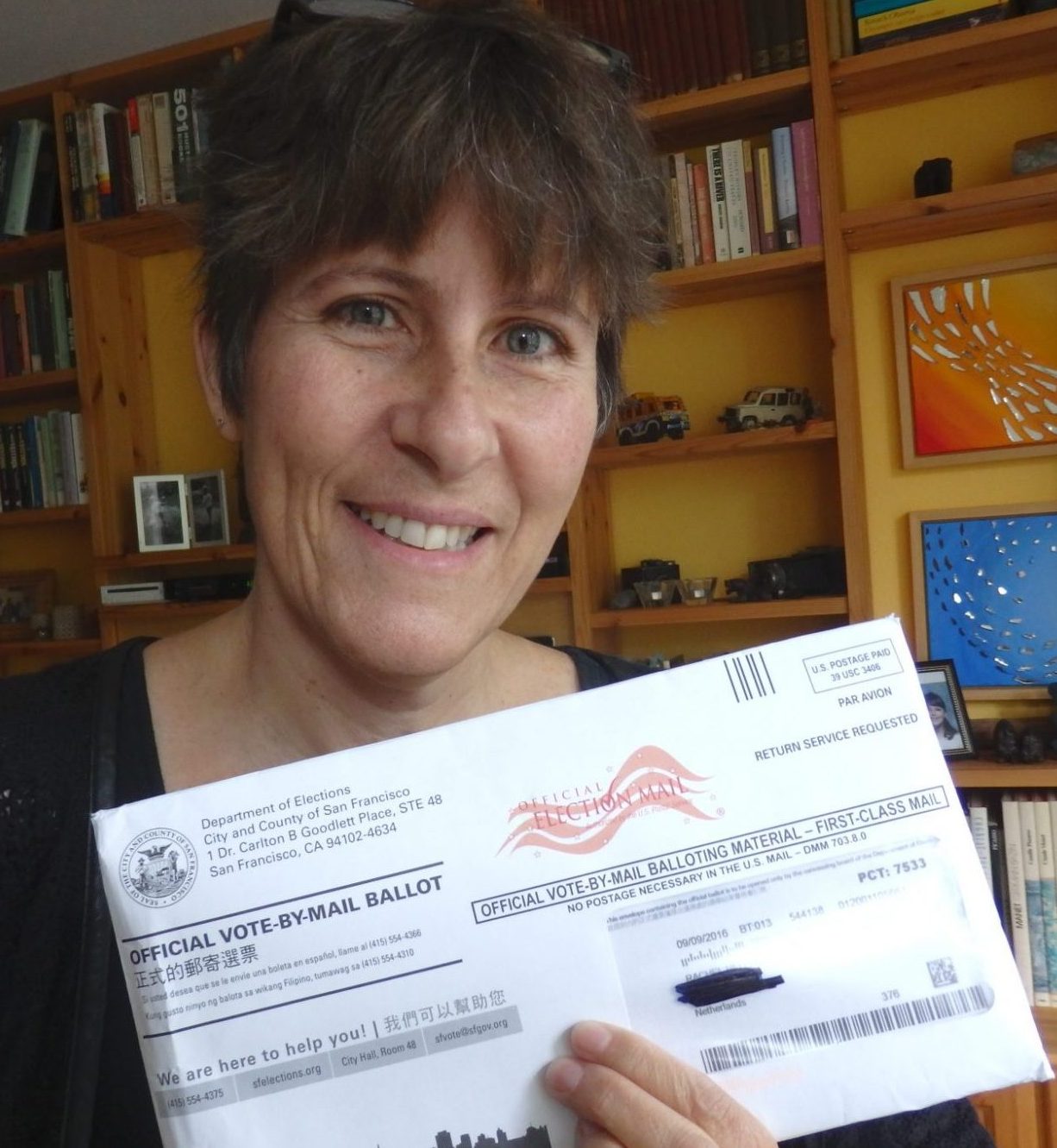On Receiving my California Voter Ballot
I won’t vote in the upcoming Presidential election.
It’s not that I don’t want to, but I gave up citizenship last November, so I can’t vote in the US elections anymore. (If you want a general overview of my reasons for renouncing, here is my Medium article about it.)
My renunciation date was November 18, 2015. I received my Certificate of Loss of Nationality on April 15, 2016.
Yet look what I received in the mail last week:

Yes, that’s a voter ballot for California.
Don’t worry, I won’t use it. I don’t commit fraud: just a general policy of mine.
This does say something about “the system” in the US, though, doesn’t it? I put “the system” in quotation marks because there doesn’t really seem to be a system.
Despite having renounced almost a year ago, California still thinks I’m a citizen.
Record-keeping
An article by Robert W Wood last year mentioned three US government agencies that keep records of renunciations: the State Department, the FBI, and the IRS.
The US State Department knows I renounced. They were there, after all, when I did it, at the Consulate in Amsterdam. They accepted my $2350, the fee for renouncing. (That still rankles.) Presumably, they counted me when they looked at their totals. Do they make a list of names? I don’t know.
The IRS does make a list, and four times a year, they issue a “name and shame” list of those who have renounced (officially called “Quarterly Publication of Individuals, Who Have Chosen to Expatriate”). Since it’s the IRS assembling that list, it won’t include those who haven’t filed their tax forms but still renounce. So it’s incomplete. I did file my forms, yet my name hasn’t appeared on that list yet, and I’m not the only renunciant who hasn’t appeared on the list.
The FBI counts renunciations too, but doesn’t publish their list. Am I included there? I don’t know.
The totals each agency reports are different, with the published IRS list reporting the lowest number of renunciations and the State Department reporting the highest number. Presumably the State Department’s list should be the closest to accurate, since they administer the actual acts of renunciation.
In any case, it’s clear that federal and state government agencies don’t talk to each other. The State Department, the IRS and the FBI don’t share data. They don’t share data with each other and they don’t share it with the states.
If they had, I would have been taken off California’s voter list; they’d see I’m no longer eligible to vote.
What does this tell us?
Two things come to mind:
There may be much more voter fraud than we suspect.
The fear many overseas Americans feel – will I be stopped by Customs and Immigration when I travel to the US if I haven’t filed my tax forms? – is not necessary. If the State Department, the FBI and the IRS can’t communicate a simple list with each other or with state governments, it seems likely that they won’t be able to communicate it to other government agencies like Customs and Immigration.
Feel free to add your comments below, but keep them civil!
My whole US citizenship series:
- Part 1: Giving up US citizenship?
- Part 2: Republicans, expatriates, and FATCA
- Part 3: How my citizenship hit me in the gut
- Part 4: My renunciation day
- Part 5: Thanksgiving reconsidered
- Part 6: FATCA, the Tea Party, and me
- Part 7: Individual freedom, self-reliance and renunciation
- Part 8: Equality? Competition? Not overseas!
- Part 9: The American Dream
- Part 10: The irony of renouncing under duress
- Part 11: Open letter to President Obama in response to the State of the Union Address
- Part 12: 7 Reasons NOT to renounce
- Part 13: Citizenship matters
- Part 14: Citizen of a parallel world
- Part 15: Renunciations in the news
- Part 16: Vote … as a non-citizen? Really?
- Part 17: The ridiculous story of a pilot and his taxes
- Part 18: On receiving my Certificate of Loss of Nationality
- Part 19: So you think you want to emigrate…
- Part 20: Indignation Fatigue and FATCA
- Part 21: The US election, as seen by Americans overseas
- Part 22: On receiving my California voter ballot
- Part 23: Watching America fall apart on my renunciation anniversary



That’s funny. I keep getting e-mails from the US Consulate in Munich even though I renounced over 2 years ago. I initially tried to renounce in Munich in the Spring of 2014 and they put me off, saying there weren’t any appointments to be had before September. Then I renounced at the General Consulate in Frankfurt in July 2014. On the day I got back from my vacation in Italy at the beginning of September, I received an e-mail from the Munich Consulate saying that the price would be raised from $450 to $2,350 in a couple of days, but that I could e-mail any objections I may have. I never wasted my time answering that e-mail, but they keep sending me all kinds of stuff. So the upshot is that there doesn’t seem to be any central coordination of who is or who isn’t a US citizen.
It doesn’t bode well for security in general, does it, if there’s no communication between agencies?
I am reassured by the bureaucratic inefficiencies in the US. Hard to envision conspiracies and authoritarianism in these circumstances.
I agree. Unless you believe in a conspiracy of incompetence.
I wouldn’t equate bureaucratic fumblings with voter fraud. There’s a huge push by Republicans in many states, under the guise of “voter fraud,” to take African Americans (primarily), Latinos, and other, generally more progressive (read: Democrats) people off the voter rolls. If you have a chance, see Greg Palast’s latest film, The Greatest Democracy Money Can Buy.
I’m not equating bureaucratic fumblings with voter fraud. I’m saying that bureaucratic fumblings and lack of communication may ALLOW voter fraud to happen.
If it’s any consolation, I am a US citizen abroad, and continue to receive my California abentee ballot, even though I switched my registration to Oregon six years ago. I have sent at least 4 letters by post, and half a dozen e-mails to the appropriate county voter registration office, yet they continue to send me a ballot every two years. I trash them.
Conclusion: California in particular is incompetent.
Wow! That’s all I can say! Just wow!
The right thing to do is to notify the California Department of Elections that you want to be removed from the rolls because you’re no longer a citizen (and not actually submit a ballot of course). If next time you still get a ballot that’s their problem, but I think you should at least be proactive on making sure you’re not exercising any U.S. citizen privileges.
That makes sense; I’ll do that. Thanks!